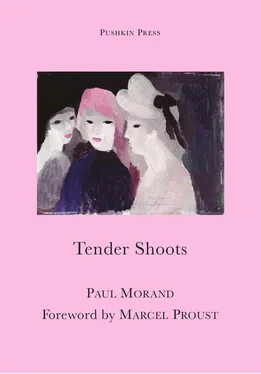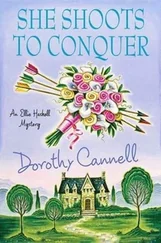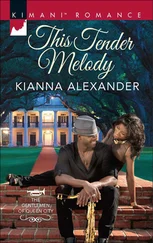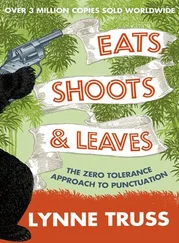Paul Morand - Tender Shoots
Здесь есть возможность читать онлайн «Paul Morand - Tender Shoots» весь текст электронной книги совершенно бесплатно (целиком полную версию без сокращений). В некоторых случаях можно слушать аудио, скачать через торрент в формате fb2 и присутствует краткое содержание. Год выпуска: 2011, Издательство: Pushkin Press, Жанр: Классическая проза, на английском языке. Описание произведения, (предисловие) а так же отзывы посетителей доступны на портале библиотеки ЛибКат.
- Название:Tender Shoots
- Автор:
- Издательство:Pushkin Press
- Жанр:
- Год:2011
- ISBN:нет данных
- Рейтинг книги:5 / 5. Голосов: 1
-
Избранное:Добавить в избранное
- Отзывы:
-
Ваша оценка:
- 100
- 1
- 2
- 3
- 4
- 5
Tender Shoots: краткое содержание, описание и аннотация
Предлагаем к чтению аннотацию, описание, краткое содержание или предисловие (зависит от того, что написал сам автор книги «Tender Shoots»). Если вы не нашли необходимую информацию о книге — напишите в комментариях, мы постараемся отыскать её.
Tender Shoots — читать онлайн бесплатно полную книгу (весь текст) целиком
Ниже представлен текст книги, разбитый по страницам. Система сохранения места последней прочитанной страницы, позволяет с удобством читать онлайн бесплатно книгу «Tender Shoots», без необходимости каждый раз заново искать на чём Вы остановились. Поставьте закладку, и сможете в любой момент перейти на страницу, на которой закончили чтение.
Интервал:
Закладка:
“This is my favourite — a Wollaston ten-bore, for big game,” says Aurora. “It came from Major X’s sale … This gun’s a pal, a real pal. We kill hippopotamuses like rabbits.”
And she runs her hand over the hammerless rifle from backsight to butt.
Hippopotamuses, your monstrous innards steaming in the mud of the deltas, crocodiles with your small, round bellies soft as lettuces, hamadryads sitting on your cheeks, brown bears, the pads of your paws more delectable than honey, hyenas like bags stuffed with bones, all of you who died by Aurora’s hand, victims of the ten-bore, am I going to fall in love with her?
No. Things turned out differently.
That evening, which was the last, had nevertheless started well. We had dined, Aurora and I, at Old Shepherd’s, in Glasshouse Street, which I like for its huge tables, its low ceiling, its toasting fork, its cold buffet adorned with daffodils in ginger ale bottles. We were separated from other people by wooden partitions, above which we could catch a glimpse of Sargent’s opulent baldness and Roger Fry’s mop of hair.
Aurora was explaining to me how she hunted in Abyssinia, in East Africa, in Nigeria. Well-known hunters granted her their company. They were simple people, “strong and silent men”, trappers, solitary individuals hunting wholeheartedly, ruggedly, fearlessly, “of the great breed of those who have slogged away through Africa” when ivory was a trade, before it became a sportsman’s trophy; these men held their lives into their own hands, with only an old rifle that took a minute to load standing between them and death, man against beast, men who ate what they had killed and who — the excuse for hunting — when they had not killed anything, ate nothing.
Aurora despises the rich young man of today who sets out from Mombasa with sixty bearers for hunting grounds that are easy and healthy.
Aurora’s stories made me drowsy. It was past nine o’clock. The nightclub, like an old hulk from the time of Nelson, had already closed its shutters shaped like portholes. We were eating cheese spread and drinking port.
And thus I arrived, with her, in lands that were inaccessible and unhealthy where little by little you have to leave behind you, firstly objects that are of no use, then the bearers suddenly struck down by a mysterious disease, then the friends killed by luminous flies …
I thought: “Will Aurora abandon me like this one day, in the antipodes, to return on my own, after such extraordinary years, or will she desert me on a bench tomorrow morning? Everything is possible. Deep down I don’t much care for extreme adventures.”
Another glass of fruity port.
“No, Aurora shall not influence me. She amuses me, nothing more. She will pass and I shall remain all alone slumbering beneath my old Buddha’s sallow fat …”
We leave. Aurora suggests the Café Royal. It is the hour for absinth, taken there, ritually, after dinner. Human beings slowly materialise in the acrid smoke of Burmese cheroots, beneath a gilt ceiling, red velvet, and mirrors with a thousand pillars. Artists in khaki, with Polish inflections, are playing dominoes with their mistresses, their sisters. One recognises sour YMCA females, once encountered in exhibitions of woodcuts. Musicians of the “eligible for call-up” school are preparing distant propaganda tours. Jewish special constables, with their armbands and an eye-glass chained to their protruding ears, await the moment to climb up to the searchlights.
Art provides war with only conditional support. While the Royal Academy paints fervently at General Headquarters, the Independents, weighed down with their conscientious objections, concern themselves with the trucks.
Daniel comes to our table.
“Montjoye is giving a supper party this evening. He has asked me to tell you that he’s been trying in vain to ’phone you and that he would like you to bring Aurora, whom he would like to get to know.”
Montjoye, or rather Aronsohn (old Norman family, says Daniel), is the Chancellor of the Exchequer’s private secretary. He has a set, decorated in the Adams style, in Albany, containing still lifes (still, due to a violent death) against a blue background, armchairs in black satin painted by Conder, and some of those Coromandel pieces carved with thick leaves for sideboards. He is happy to offer post-theatre drinks.
“I won’t go to Montjoye’s,” Aurora says. “He’s an unwholesome man. He exudes a stench of corruption.”
“You talk like the Archbishop of Westminster.”
“He’s been asking me to come to his house for a long time. I’ve never wanted to go there. Let’s call it pure unsociability on my part …”
I shrug my shoulders.
How irritating remarkable human beings are. I know that Aurora will go to Montjoye’s. She wants to go there. She will go just as she goes everywhere, when she is invited. Just as she stays in town extolling the virtues of the forests, just as she dines at the Carlton declaring that she likes to cook her food between two stones; just as she goes naked, out of snobbery and shyness; just as she claims to have introduced order into her life which is nothing but incoherence, ineptitude and confusion. What is the point of these rituals if they culminate in the absurd and ephemeral existence of those women one meets on ocean liners, in hotel lobbies, at fund-raising shows, and who, for their part at least, have the merit of naivety, of vice, or of foolishness?
I know, from having often attended them, that Montjoye’s parties are not suitable for Aurora, or for any woman one cares about. But she has to go; she will learn for herself that there are not only boars, but boors too.
“I’ve got a taxi,” says Fred. “I’ll drop you.”
Montjoye himself opens the door to us. His bulk stands out against a yellow curtain in the entrance hall. He opens the door with a mixture of curiosity and fear, as though he were frightened that the interest he shows in one might be punished with a slap. (Whenever he happens to call on me, his words of greeting are always: “I must be going.” Then, he hovers in the doorway until I say to him: “Well, close the door.” “In front of me or behind me?” he ventures timidly.) He has eyes only for Aurora, takes no notice of Fred and me, and greets our friend familiarly.
“Aurora! You’ve come, at last.”
He takes both her wrists, strokes them, leads her beneath the lantern with black tassels, uncovers her shoulders with that degree of nerve that only he possesses.
“How beautiful you are!”
In the circular drawing room, supper is served for eight. Grünfeld, the Bolsheviks’ unofficial agent, the Duchess of Inverness, a Dutchman by the name of Bismark, Gina and several actors.
Montjoye takes Aurora by the arm, laughs at her embarrassment, pours her a drink and seats her next to the duchess. I loathe Montjoye. He is the person who comes to mind when I try to recall how long I have had a horror of people of taste. I cannot describe the irritating minutiae of his home. From the tongs to the doorknobs, from the candelabras with their green candles to the engraved glasses, everything is perfect. On the work table, which has been pushed into a corner of the room so that people can dance, there are a pile of documents: Credits to the Allies, Loans to the Banque de France, Special Expenses . All of the minister’s work is there, in a jumble, amid tuberoses and photographs. But with his genius for figures, his work that can be done in an instant, Montjoye will be able to make sense of it all overnight, on his boss’s behalf, the day before questions in the House or a conference.
“We can’t manage to get you drunk, Aurora. However, promise me you will drink this, which I have prepared specially with you in mind.”
Читать дальшеИнтервал:
Закладка:
Похожие книги на «Tender Shoots»
Представляем Вашему вниманию похожие книги на «Tender Shoots» списком для выбора. Мы отобрали схожую по названию и смыслу литературу в надежде предоставить читателям больше вариантов отыскать новые, интересные, ещё непрочитанные произведения.
Обсуждение, отзывы о книге «Tender Shoots» и просто собственные мнения читателей. Оставьте ваши комментарии, напишите, что Вы думаете о произведении, его смысле или главных героях. Укажите что конкретно понравилось, а что нет, и почему Вы так считаете.












